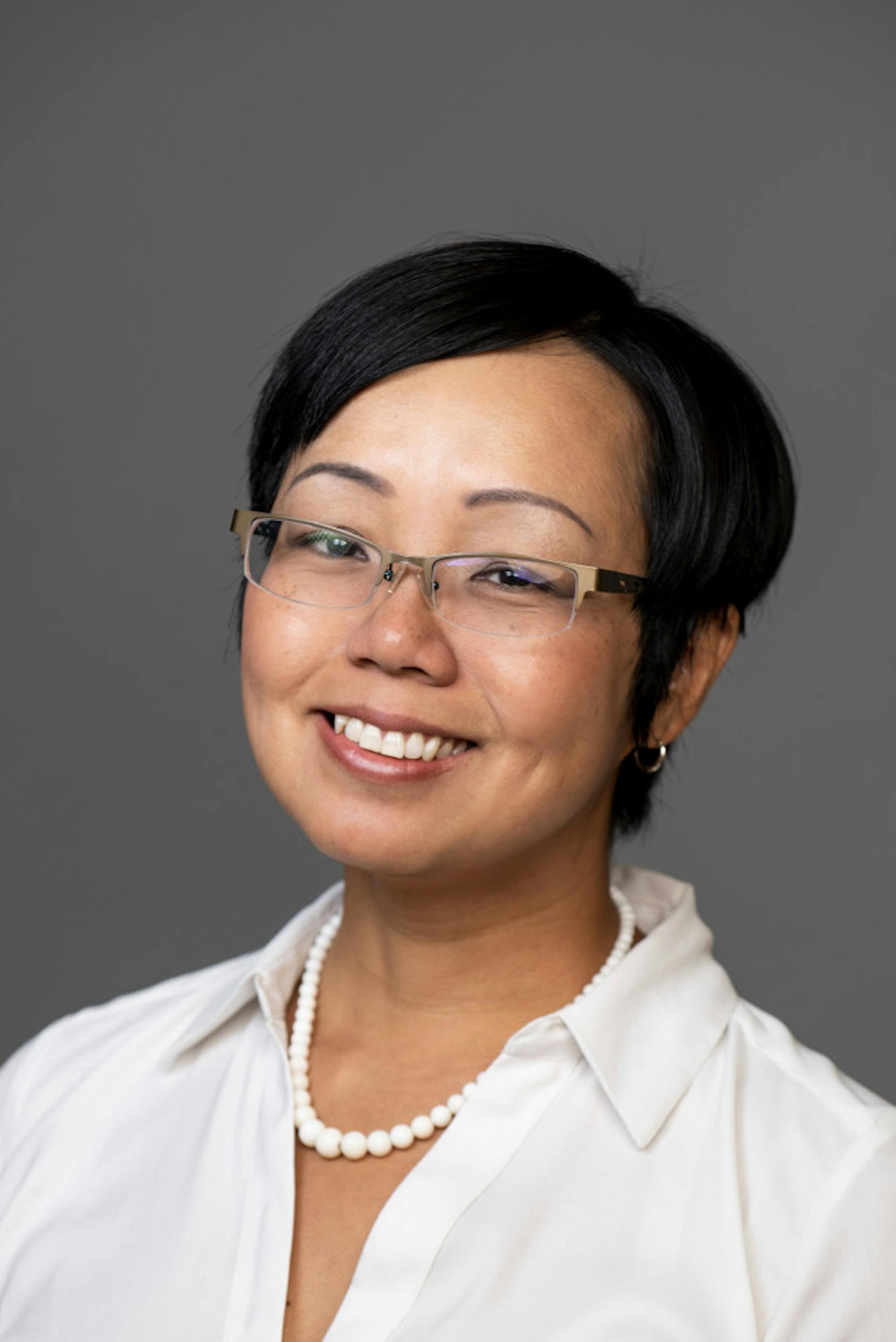The historic events of the past academic year have left many people seriously reflecting on the health of American democracy. Among these events were the continuation of a pandemic that has taken the lives of over half a million Americans and millions more around the world, a polarizing presidential election, a domestic attack on the Capitol and a rare guilty verdict for a police officer whose murder of George Floydsparked a renewed movement for racial justice.
Such happenings have spurred political theorists, educators and students alike to ponder what can be done to address issues regarding the strength of American democracy. For Kei Kawashima-Ginsberg, director of Tufts’ Center for Information & Research on Civic Learning and Engagement at the Jonathan M. Tisch College of Civic Life, the answer — or at least an important part of it — is strengthening civic education for young people across communities and identities.
Kawashima-Ginsberg is currently working on an initiative calledEducating for American Democracy to improve K-12 civic education.
“Six years ago, [CIRCLE] really shifted to focus on ... both racial and economic equity,” Kawashima-Ginsberg said. “We think about how do we make sure the electorate is representative of our country, but also how do we not just repeat the mistake of talking to just college students or just talking to people that are living in swing states?’ So K-12 civic education becomes a really important means to that end.”
Kawashima-Ginsberg emphasized that starting the program in kindergarten is crucial to laying the foundation for children's understanding and practicing of democracy.
“[Children have] an opportunity to ask questions like, ‘Who are we as a community, who am I and what should we do together?’" Kawashima-Ginsberg said. “Those are the fundamental questions of democracy.”
A goal of Educating for American Democracy is to make students feel empowered to be active participants in democracy when they grow older. According to Kawashima-Ginsberg, civic education and culture at the college level are a vital next step in the process of fostering democratic ideas among young people. She noted that, at Tufts, a culture of civic engagement already exists but can be improved upon.
“I think, especially here at Tufts, there's already great ethos of service and giving back to the community," Kawashima-Ginsberg said. "Hopefully Tisch [College] will really support this more and more. We're trying hard ... and really thinking about how the students and institutions begin to be partners in having us all do better."
Kawashima-Ginsberg highlighted that many staff members are actively civically engaged, and she hopes others will become more civically minded in the future.
“Our dining service, for example, are really civically engaged. I’m very proud that we have that department,” she said. “But I think every institution has pockets to address ... It also supports initiatives around making sure the faculty has opportunity to learn about, for example, social emotional learning and mindfulness … so that students in the classroom, in the moment, experience that positive engagement rather than feeling like, ‘Oh I have to be somebody else to be in this class.’”
Kawashima-Ginsberg emphasized that, at the college level, one of many key goals of civic education is getting all young people to engage with democracy by voting.
“I think it’s really important that institutions of higher ed, like Tufts, really make that expectation for students … and really galvanize in this identity, both as a Jumbo and as a private citizen, to think of voting as something that you always do,” Kawashima-Ginsberg said.
Kawashima-Ginsberg added that civic engagement at the college level has already made an impact on elections, comparing the relatively low voter turnout among young people in the 2016 presidential election with the record high turnout among young voters in 2020.
“Data continue to show that … young people really struggled [during the pandemic] ... especially young people of color, who are really affected by COVID and economic downturn,” Kawashima-Ginsberg said. And yet, she said, "we’ve seen record high voter turnout, and we really think that did happen partly because of this commitment to social justice.”
She also highlighted that voting is just one of many ways people can be civically engaged.
"I consider calling a friend who's struggling civic engagement just as much as voting and organizing," Kawashima-Ginsberg said.
Kawashima-Ginsberg hopes that Tufts seniors graduating under these historic circumstances recognize the importance of their contributions to American democracy in all forms throughout their lives, but especially during these past four years.
“My hope is that there is at least a recognition that they helped to save the democracy,” Kawashima-Ginsberg said.






